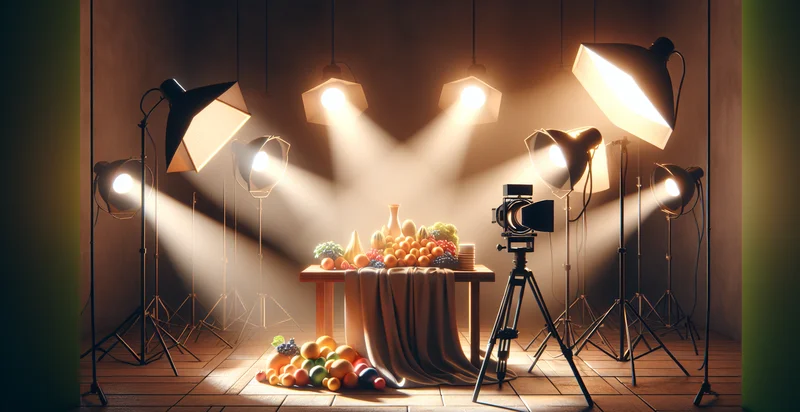Identify photo artificial lighting
using AI
Below is a free classifier to identify photo artificial lighting. Just upload your image, and our AI will predict the type of artificial lighting used in the photo - in just seconds.

Contact us for API access
Or, use Nyckel to build highly-accurate custom classifiers in just minutes. No PhD required.
Get started
import nyckel
credentials = nyckel.Credentials("YOUR_CLIENT_ID", "YOUR_CLIENT_SECRET")
nyckel.invoke("photo-artificial-lighting", "your_image_url", credentials)
fetch('https://www.nyckel.com/v1/functions/photo-artificial-lighting/invoke', {
method: 'POST',
headers: {
'Authorization': 'Bearer ' + 'YOUR_BEARER_TOKEN',
'Content-Type': 'application/json',
},
body: JSON.stringify(
{"data": "your_image_url"}
)
})
.then(response => response.json())
.then(data => console.log(data));
curl -X POST \
-H "Content-Type: application/json" \
-H "Authorization: Bearer YOUR_BEARER_TOKEN" \
-d '{"data": "your_image_url"}' \
https://www.nyckel.com/v1/functions/photo-artificial-lighting/invoke
How this classifier works
To start, upload your image. Our AI tool will then predict the type of artificial lighting used in the photo.
This pretrained image model uses a Nyckel-created dataset and has 20 labels, including Amateur, Backlighting, Colored Lighting, Dappled Lighting, Dramatic Lighting, Flat Lighting, Front Lighting, Harsh Lighting, Home Lighting and Indoor Lighting.
We'll also show a confidence score (the higher the number, the more confident the AI model is around the type of artificial lighting used in the photo).
Whether you're just curious or building photo artificial lighting detection into your application, we hope our classifier proves helpful.
Related Classifiers
Need to identify photo artificial lighting at scale?
Get API or Zapier access to this classifier for free. It's perfect for:
- E-Commerce Product Photography: E-commerce platforms can use the photo artificial lighting identifier to ensure that product images meet certain lighting standards before they are uploaded. By identifying poorly lit images, sellers can improve the overall quality and appeal of their products, leading to higher conversion rates.
- Social Media Content Verification: Influencers and brands can utilize this function to verify the authenticity of images shared on social media. By ensuring images are not artificially enhanced with misleading lighting, brands can maintain authenticity and trust with their audience.
- Photojournalism Integrity Check: News organizations can employ the lighting identifier to verify the authenticity of images used in reporting. This helps maintain journalistic integrity by ensuring that photographs have not been altered in a way that misrepresents the event being reported.
- Artwork Validation for Auctions: Art auction houses can use this tool to assess the authenticity of submitted artwork images. By detecting artificial lighting alterations, they can ensure that the images accurately represent the artwork’s original appearance, preventing misrepresentation to potential buyers.
- Real Estate Marketing: Real estate agencies can implement this identifier to check property images used in listings. By filtering out artificially lit photos, agencies can present homes in their true light, enhancing trust with potential clients and improving viewing rates.
- Fashion Industry Standards: Fashion brands can utilize the function to maintain consistent lighting standards across their marketing materials. By identifying images altered with artificial lighting, brands can ensure that depictions of their clothing are accurate, helping to manage consumer expectations.
- AI Training Data Quality Control: Companies developing AI models for image recognition can use this identifier to clean their training datasets. By filtering out images with artificial lighting, they can enhance the quality of the data fed into their algorithms, leading to more accurate and reliable AI performance.


